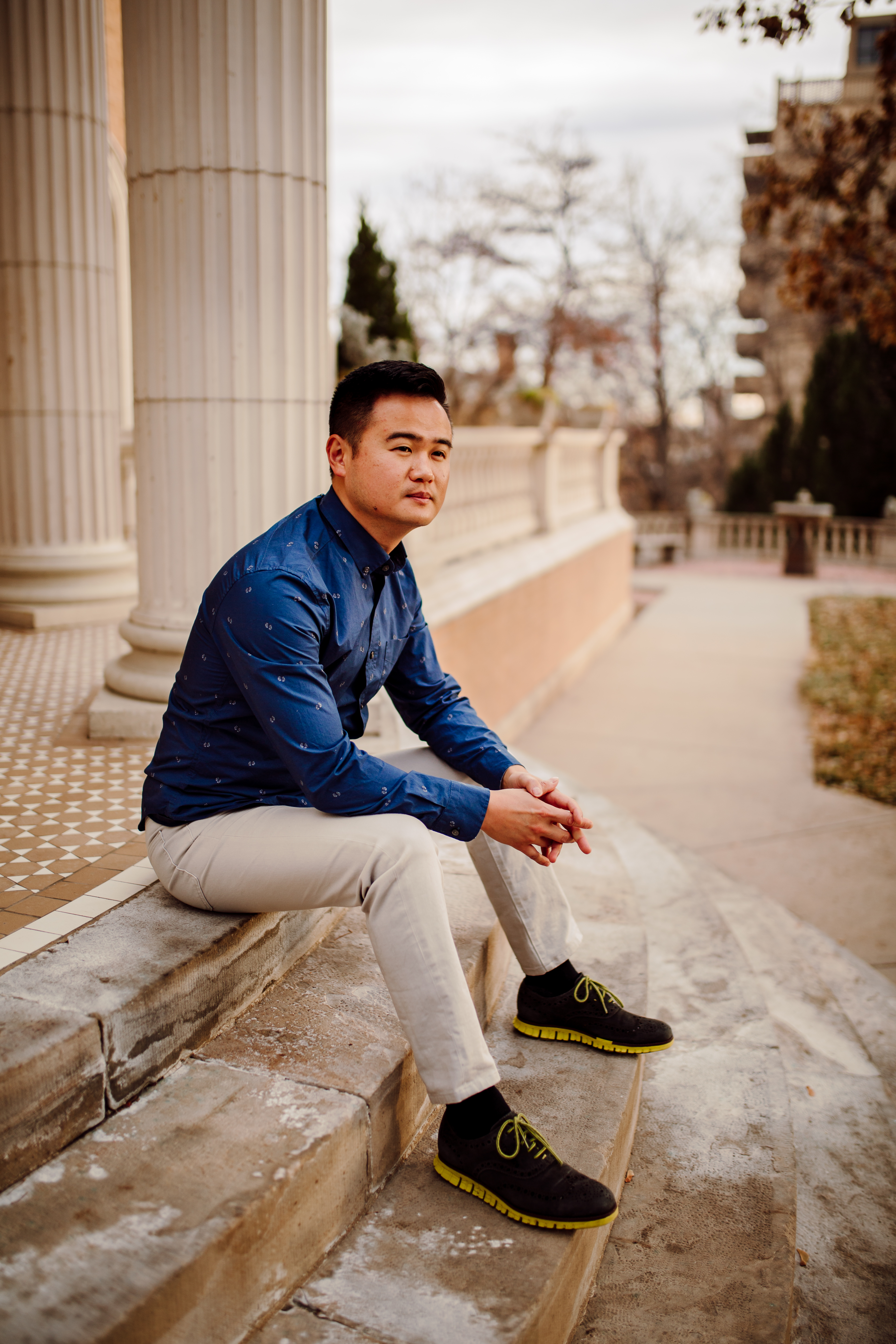
May is Asian Pacific Heritage Month and Mental Health Awareness Month. In honor of these two dear-to-heart issues, I want to share the important intersection between these two subjects and how they have influenced and inspired me and made me who I am today.
The first time I became aware of the intersection of my Asian identities and mental health was when I was in college in 2004.
Due in part to my Asian heritage and monastic background, I grew up in an extremely male-dominated household and community. From a very young age, I was taught that men are superior and women are inferior, men are to be respected and treated as authority figures. The role of the female is to serve these men. I was accustomed to being served by female figures and enjoyed certain privileges such as receiving special attention involving my education; I never had to do household chores like cooking and washing dishes. From this childhood upbringing, I believed that I deserved respect simply because of my gender and status as a male.
Because of the pedestal that other men and I were placed on as a male member of this society, I had to project manhood and masculinity externally. This meant that I had to act and display courage at all times and I wasn’t allowed to show any weakness or emotion. The side effect of this display of masculinity was an inability to share inner struggles and mental health challenges because it was socially unacceptable for men to do so. Whatever challenges I experienced and displayed externally, I was told to “man up” or “get over it.”
Fast forward to 2003, I moved to the freshman year co-ed dorm at the University of Colorado at Boulder. What I witnessed and experienced on the campus was totally opposite from my upbringing. Gender hierarchy was blurry. Female students were more on equal ground with the male students and engaged in similar activities. In order to gain respect and attention from the opposite sex and people in general, men had to work for it.
About the same time, I started experiencing Major Depression and Seasonal Affective Disorder. The gender cultural shocks and differences not only threatened my masculinity, they also erased my male identity. The loss of my male identity and masculinity further contributed to my mental health challenges.
Due to mental health stigma and the false sense of male masculinity, the idea of openly talking about my depression to my friends or receiving mental health care from a campus therapist was not even fathomable. Thus, the pain and struggle of depression lasted for the remaining years in college and into my twenties.
During the first year in college, I was part of the Chancellor Leadership Program. The program director, Carol, played an intrinsic role in supporting my mental health and assisting me in processing my own masculinity struggle. Carol is a third generation Japanese American who has decades of experience and background working with Asians and Asian American populations. Whenever I would hit a low point in my depression, I often sought out support from Carol. Carol would listen, ask questions, and provide reassurance and practical information like campus resources. I don’t recall Carol giving much advice. Knowing my background of resisting seeking therapy and my male pride, what Carol did was provide me with a form of non-clinical support and intervention, which was extremely valuable, helpful, and productive for my mental health and my own inner journey redefining this male identity.
Fast forward to 2010 when I started working for Dr. DJ Ida at NAAPIMHA. DJ is a third generation Japanese American who barely speaks any Japanese. DJ is one of the wisest and most compassionate people that I have ever known. DJ is as American as it gets and she loves and embraces her Japanese heritage. DJ has shown me and taught me how to embrace my traditional male identity within the modern American cultural norm.
The first step is to reclaim who I am and to be proud by truly appreciating my own cultural identities as a Taiwanese and American. Due to historical racism in the U.S. targeting Asians, my Taiwanese/Asian identities have always been put down and discriminated against. The more external discrimination I experienced, the more I felt the pressure to sacrifice my Taiwanese/Asian identities to be as “White” as possible. These attempts to forsake my Taiwanese/Asian identities never truly worked because those identities are still there within me, unaddressed. It’s like the pile of laundry on my bed. No matter how many times I move it to different corners of my bed, the pile is still there. Also, this forced oblation of my identities contributes to the continual loss of my Asian heritage which further deteriorates my mental health. Thus, I reframe my thoughts, telling myself to stop chasing something that’s not mine and turn my focus within to understand and appreciate who I really am.
The second step is to redefine who I am. Yes, I grew up in a male-dominated sexist environment. And, yes, I am embarrassed about it and want to erase it from my life. At the same time, it doesn’t mean I need to throw all of my Asian/Taiwanese identities and heritage away. The last thing I want to do is “throw the baby out with the bathwater.” Discarding my past sexist and patriarchal self doesn’t mean that I have to stop being a man. In fact, by throwing the toxic identity parts away, I feel like I am becoming a better man.
The last step is working toward the upgraded male identity that I want to be. I want to be assertive and not over-dominating, confident and not arrogant, caring and not overprotective, and strong without being too macho. These are the male traits that I want to fully embrace. And, every single day, I am working toward bettering myself
I’ve listened to an interview of Indra Nooyi (former CEO of PepsiCo, first women and foreign-born in the PepsiCo senior leadership). Growing up and still living in a traditional Indian household and as CEO of one of the largest companies in the world, Nooyi describes how she had to learn and relearn her own gender role as an Indian daughter, a mother, a wife, and a CEO. Her process started with truly embracing who she really is and she didn’t let her culture and various roles define who she is. Nooyi’s stories solidified my confidence in this process.
It has taken almost a decade for me to rediscover my male identity and truly feel comfortable and confident within my newfound self. The process has been challenging and at the same time very rewarding. Once I reclaimed who I am, my overall mental health and depression improved tremendously like a boulder lifting off my shoulders.
I have accomplished this feat with the tremendous support and mentorship from Carol and DJ. And, I want to end this blog by highlighting and honoring all the great Asian American women who have advocated and fought for Asian American rights. Carol and DJ are two significant individuals that have made a huge impact on countless Asian Americans, and Americans overall.
Photo by Rachel Audette

Recent Comments